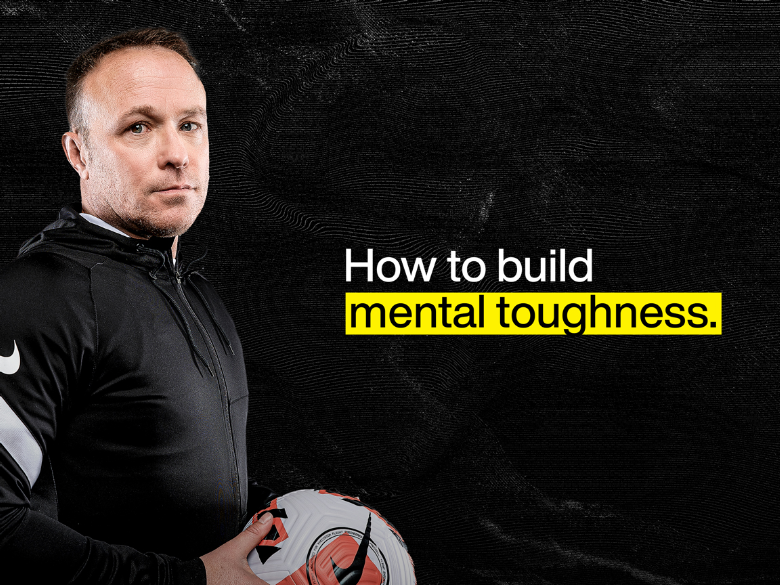Mental Toughness: Developing a Winning Mindset
March 4, 2024

The beautiful game of soccer, with its kaleidoscope of emotions, remains a prime field for the cultivation of mental toughness. For youth players, the journey is not just about learning tactics or perfecting technique; it's about forging an indomitable spirit that can withstand the pressures of competition and life. In this comprehensive guide, we'll explore the intricacies of mental strength as it applies to the young aspiring soccer player.
The Foundations of Mental Toughness
Mental toughness is a repertoire that includes resilience, focus, and a positive attitude, all of which can be developed and honed over time. Understanding the foundations is crucial as it leads to a more profound personal development journey.
Setting Realistic Goals
Youth soccer players can easily become discouraged if their goals are too far-reaching or based on external factors such as what their peers are doing. Setting realistic goals is about understanding one's skills and capabilities while also acknowledging areas that require improvement. It’s the path to setting attainable milestones that not only challenge but also motivate players to push their boundaries.
Building Confidence Through Competence
Confidence is the cornerstone of mental toughness. The key to confidence is competence, which is developed through consistent training and skill-building. Each small victory, every improvement, and the successful execution of new techniques bolster a player's self-belief, providing a solid foundation for enduring confidence on the pitch.
Developing Resilience in the Face of Adversity
The innate ability to bounce back from setbacks is essential in soccer and life. Whether it's a missed penalty kick or a tough loss, players need resilience to not only persevere but to thrive.
Embracing Failure as a Learning Opportunity
One of the most important life lessons soccer teaches is that failure is not the end, but often the beginning of success. Youth players should learn to view failures as stepping stones, not as evidence of inadequacy. Each misstep is a chance to learn, adapt, and improve—transforming defeat into a valuable learning experience.
Cultivating Grit
Grit, a term popularized by psychologist Angela Duckworth, encapsulates the combination of passion and perseverance. Gritty players don’t crumble when things get tough; instead, they see adversity as a challenge to their resolve. Coaches play a critical role here, modeling and teaching the essence of grit, and instilling in players a never-say-die attitude.
Concentration and Focus in the Chaos of Competition
Soccer is a sport where circumstances can change in the blink of an eye. To succeed, players must develop the ability to maintain their focus and concentration.
Mindfulness in Play
Mindfulness is the art of living in and responding to the present moment without concern for the past or future. In soccer, this translates to a heightened awareness of the game at all times, enabling players to make better decisions and execute with precision.
Overcoming Distractions
The ability to shut out distractions is often what separates the good from the great. Whether it’s the pressure of a big game or the noise from the sidelines, players need to develop mental strategies to maintain their concentration. Visualization, meditation, or pre-shot routines can be employed to block out the cacophony and focus on their play.
Dealing With Pressure Situations
Moments of high pressure can rattle the most seasoned players, let alone young athletes. Learning how to manage pressure is a critical component of mental toughness.
Preparing for High-Stakes Games
Mental preparation for high-stakes games starts long before the day of the match. Visualizing success, regulating nerves, and developing a routine that players can rely on are essential steps in preparing for peak performance. These strategies help combat the stress that comes with important competitions and enable players to perform at their best under pressure.
The Role of Self-Talk
Self-talk can make or break a player's performance. Teaching players to maintain a positive internal dialogue, even in the face of challenges, can significantly impact their ability to handle pressure. By reframing negative thoughts into positive affirmations, players can boost their confidence and manage their stress levels.
Integrating Mental Toughness into Training
Mental toughness is not just reserved for game days; it must be part of the fabric of training and development.
Drills and Exercises
Incorporating specific mental training into practice, such as pressure drills or concentration exercises, can help players familiarize themselves with the psychological demands of the game. By simulating game situations and working through the stress in a controlled environment, players build their mental resolve and become more comfortable with adversity.
Consistency in Mental Training
Similar to physical training, mental training must be consistent to yield results. Daily meditation, visualization exercises, or incorporating mindfulness into warm-ups can sharpen a player's mental acuity over time, providing them with a significant edge on the field.
The Importance of Mental Toughness Off the Field
Life off the field has a direct impact on a player's performance. Balancing the demands of school, social life, and soccer can be challenging but is an integral part of the mental toughness journey.
Self-Care and Recovery
A well-rested mind is just as important as a well-rested body. Players should learn to prioritize sleep, downtime, and recovery to maintain mental sharpness. Practices of self-care such as maintaining a balanced diet, engaging in hobbies, and managing time effectively can contribute to the overall mental health and well-being of young athletes.
Emotional Intelligence and Team Dynamics
Understanding one's emotions and those of others is crucial for building strong team dynamics. Youth players should learn to communicate effectively, manage conflict, and provide support when needed. A cohesive and supportive team environment can lessen the mental burden on individual players and create a space for shared resilience and success.
Coaches' Role in Fostering Mental Toughness
The influence of a coach on a player's mental toughness cannot be overstated. Coaches serve as mentors and guides, who have the power to shape the mental landscape of their players.
Providing Constructive Feedback
Feedback is a powerful tool in the coach's arsenal. Constructive and timely feedback can help players identify their strengths and weaknesses, understand their performance, and guide their development. It's important for coaches to frame feedback in a positive and growth-oriented manner to support the development of resilient players.
Relationship Building and Trust
A strong coach-player relationship built on trust and respect is crucial for instilling mental toughness. Players who feel supported and valued are more likely to take risks, learn from their mistakes, and ultimately become mentally stronger. Trust also enables open communication, which is essential for addressing mental challenges and finding solutions.
Empowering Players for Life Through Soccer
The lessons of mental toughness learned in soccer transcend the pitch, preparing young players for the challenges of adult life.
Transferable Skills
The skills developed through mental toughness training—such as goal-setting, resilience, and focus—are transferable to academic pursuits, career goals, and personal challenges. By excelling in soccer, players are also preparing themselves for a life filled with victories and adversities that call upon their mental fortitude.
